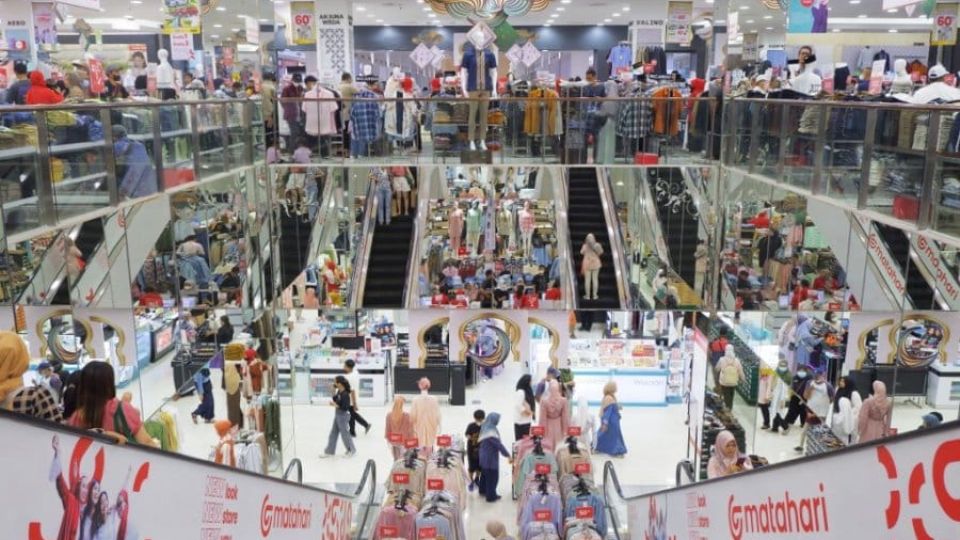May 11, 2023
JAKARTA – Indonesian retailers are projected to maintain their sales momentum even after Ramadan and the Idul Fitri holidays, which normally lift consumer spending, came to an end, Bank Indonesia (BI) data show.
Preliminary data released by the central bank on Wednesday suggest the real sales index (RSI) rose to a reading of 241.6 in April, or up 1 percent year-on-year (yoy).
That would mark a slowdown, however, from the annual growth rate of 4.8 percent retailers had registered in the preceding month.
Retail spending growth, according to the latest estimates, was mainly pushed by demand for cultural and recreational goods, household goods, vehicle fuels as well as vehicle spare parts and accessories.
BI spokesperson Erwin Haryono noted in a press statement released on Wednesday the increase in demand during Ramadan and Idul Fitri could be partly attributed to “retailers’ discount strategy and smooth distribution”.
Even though Muslim consumers refrain from eating and drinking throughout daylight hours during Ramadan, they tend to spend more on food and beverages, as sumptuous meals are common for iftar when they break the day’s fast at sundown, often in a ceremonial setting or a private gathering.
Food, drink and tobacco (FBT) sales experienced a surge in April, according to BI data, followed closely by sales of electronic devices.
In monthly terms, retail sales shot up by 12.2 percent last month, the preliminary data show, which is another significant step up after the 7-percent rise logged in March already marked a turnaround from a monthly drop of 3.4 percent in February.
Read also: Retail sales rise 7% in March thanks to seasonal jump
“As for prices, respondents predicted inflationary pressure would lessen in June and September 2023,” wrote Erwin.
The BI survey also showed retailers projected pressure from inflation to go down throughout this year.
Retailers say they had increased stocks in anticipation of rising demand from customers, BI noted.
In line with the rising retail sales, consumer confidence also rose in April, according to a separate BI survey.
BI’s consumer confidence index (CCI) rose to 126.1 in April from 123.3 booked in the month prior.
“Strengthening consumer confidence in April 2023 was pushed by a rising current economic condition [subindex] and consumer expectation [subindex],” wrote Erwin in a statement also released on Tuesday.
The current economic conditions subindex was pushed up especially by the respondents’ more positive assessments regarding the availability of jobs and their income situation.
As reported earlier, Statistics Indonesia (BPS) announced on Friday Indonesia’s GDP had been up 5.03 percent yoy in the January-March period, marking a marginal acceleration from the 5.01 percent annual gain registered in the preceding quarter.
Read also: GDP beats estimates as growth holds above 5 percent
That figure could be interpreted as Indonesia’s economy showing resilience in a turbulent global environment, and the growth rate came in slightly higher than many had forecast.
Coordinating Economic Minister Airlangga Hartarto said on Friday, “The national prospects are still strong”, as seen in the purchasing managers index (PMI), the trade balance and the debt-to-GDP ratio. He expressed optimism Indonesia could reach the 5.3-percent economic growth target by the end of this year and claimed the country had “recovered faster than everyone else”.


